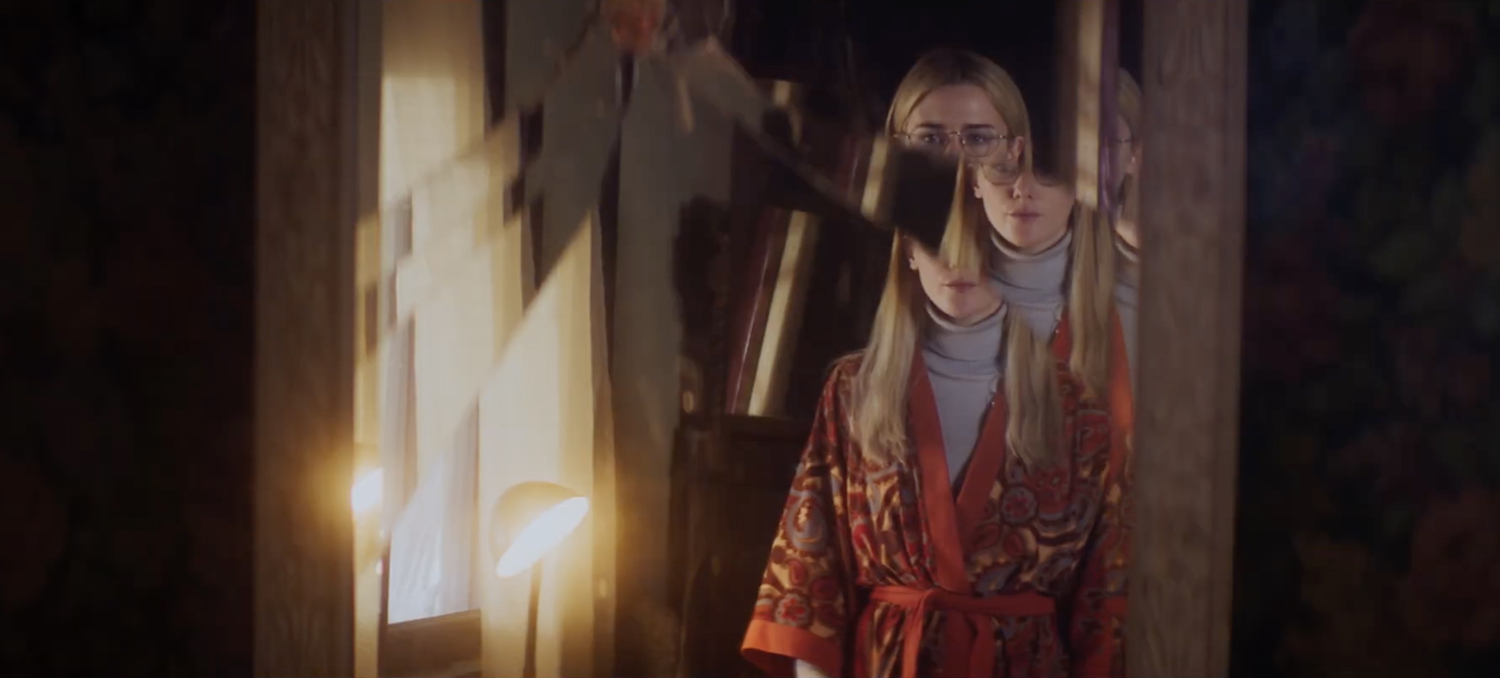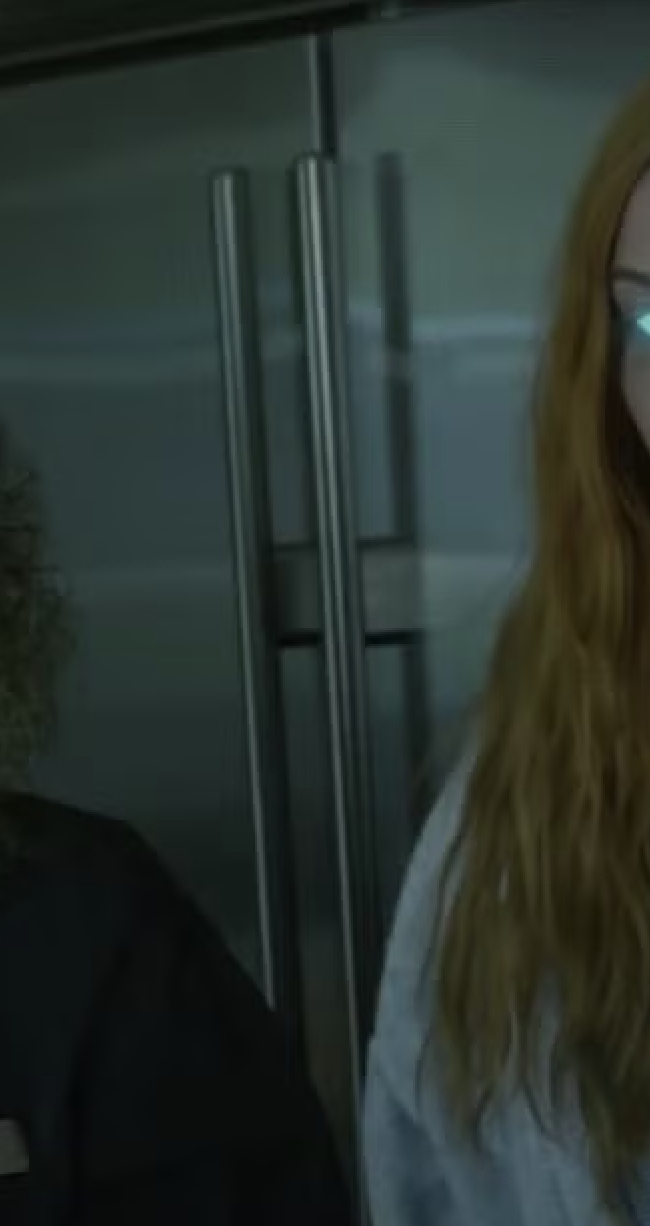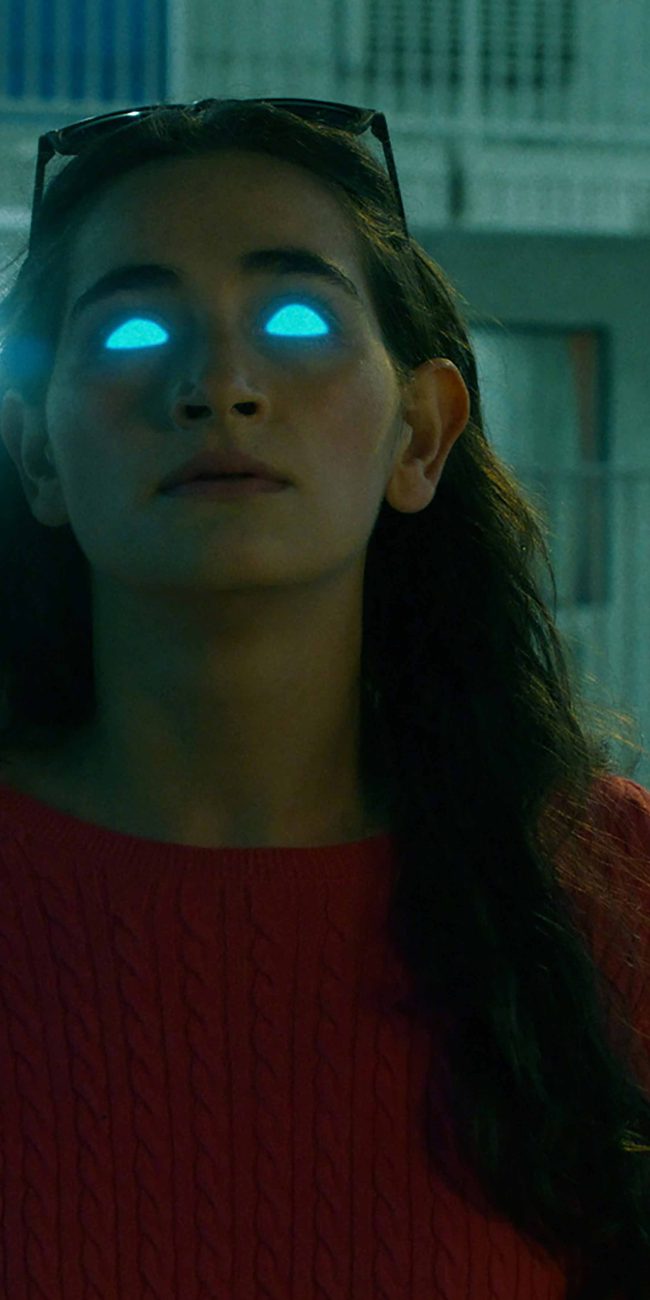WHEN I’M A MOTH

(Zachary Cotler and Magdalena Zyzak’s When I’m a Moth is available now on VOD from Dark Star Pictures. Like what you see here on Hammer to Nail? Why not give just $1.00 per month via Patreon to help keep us going?)
In the summer of 1969, Hillary Rodham Clinton — then just Hillary Rodham — worked at a cannery in Alaska, “sliming” salmon (as the process of cutting them up and removing their guts is called) and generally (we can guess) thinking about what the future might hold. Then she went off to Yale Law School, met Bill, and her life took on the shape it did. What was that young woman like, before the forces of history propelled her forwards? Such is the question pondered by filmmakers Zachary Cotler and Magdalena Zyzak (The Wall of Mexico), who imagine adventures of the body, mind and spirit for their determined heroine, played here by Addison Timlin (Little Sister) in When I’m a Moth. It may not all hang together, but it’s an intriguing watch, nonetheless, shot in a visually evocative style in the beautiful (if harsh) landscapes of British Columbia.
When first we meet our Hillary, she is in that cannery, the lone white person among Asian and, possibly, indigenous workers (everyone’s covered in heavy work clothes, so faces are not always distinct). She’s slower than everyone else, and not particularly appreciated. What is she doing there, anyway? Is this just bourgeois slumming? It looks that way. Back in her cabin, she writes home to her parents about the challenges of the job and how she feels old, though not in the sense that her body has aged, but more that time has been “broken, or bent.” She’s unsure of herself and very lonely.
But then she decides to approach two unemployed (or barely employed) Japanese men on the beach, who have heretofore watched her walk by every day. They are Ryohei (TJ Kayama, Path of Dreams) and Mitsuru (Toshiji Takeshima, Scramble), and though they can’t figure out this strange transplant from Chicago, they let her invite them for drinks. She just wants people to talk to; they want the booze. And then they want her. But she’s hungry for conversation, even if the people with whom she’s speaking don’t understand her. It’s not just a language barrier, but one of personality, too. Still, despite her intellectual rants, she is genuinely curious about the world and open to new experiences. So she goes with the subsequent strange flow.
What follows is an odd meditation on time, destiny, politics and more, with some gender, cultural and racial conflict, as well. Not to mention Dostoevsky. “Don’t you ever feel like you’re not a real person?” she asks a bemused Ryohei. “Do you think I’m real?” she continues. She alternates this with running commentary on the state of the country — “America is getting sicker every day” — and her thoughts on how, one day, she will fix its problems. She is both fearless and hopelessly naïve. Or maybe she’s right, and the United States missed the opportunity to allow her to solve that which ails us.
All of this, beyond the Alaskan cannery setting, is pure fiction. It feels, however, like exactly the kind of journey a recent college graduate, particularly one as apparently sheltered as Hillary is made out to be, would undertake. She seeks an awakening of the senses as a launchpad for later achievement. Is she arrogant? Not intentionally, but nobody enjoys being studied like the subjects of someone’s personal anthropological research. Still, her new Japanese companions give her room to stretch her mind, which is what she desires most. In return, she may grant at least one of them what they desire.
The images are almost all individually stunning to behold, Cotler and Zyzak working with intense close-ups, shallow focus and blurred edges of the frame (perhaps using a Lensbaby). The result is a landscape simultaneously gritty and dreamlike. Timlin’s performance, a combination of passion and twentysomething disaffection, works perfectly in this environment, and she is ably supported by the desperate ennui that Kayama and Takeshima bring to the screen. The title comes from the way Ryohei describes her: she is like a moth, with a predetermined path towards the light. As with the movie itself, that description only appears to make sense from a distance. Examined in finer detail, it loses shape, though remains fascinating, throughout. May all cinematic experiments, conceptually imperfect as they may be, hold our attention with the same poetic urgency.
– Christopher Llewellyn Reed (@ChrisReedFilm)











